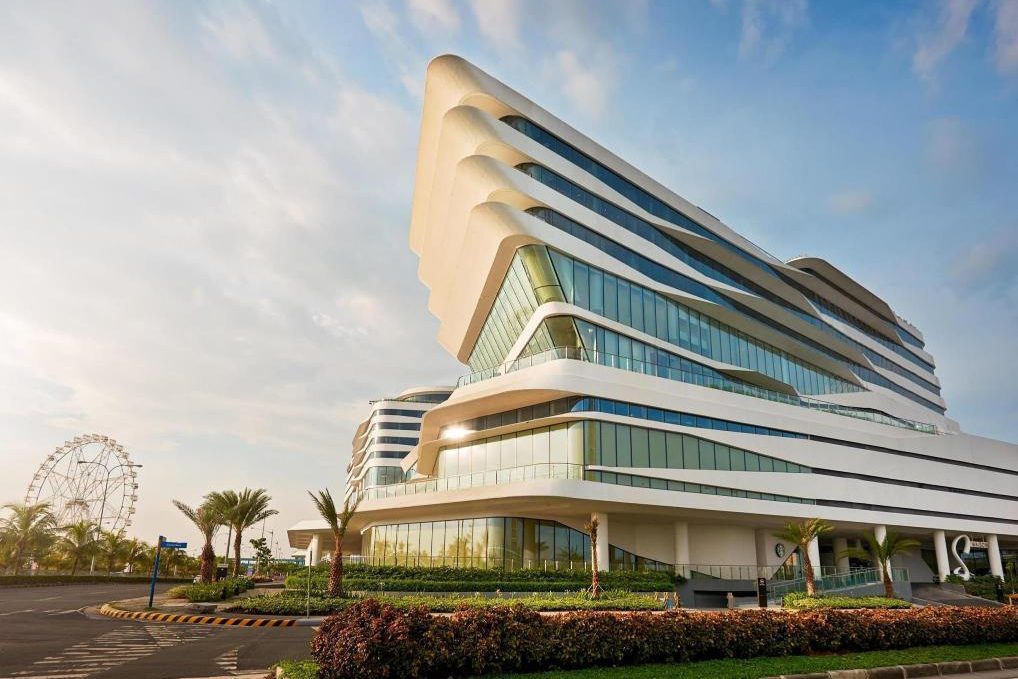Skift Take
For many, the idea that a few families can control a whole industry is unthinkable, unfair, actually galling. In Philippine tourism, it’s as entrenched as the sight of a jeepney — no one thinks anything of it at all. That has to change, although it won’t be anytime soon.
 Legacy families are a huge part of the economic structure in Asia. Thailand has its Chearavanonts and Chirathivats, Hong Kong its Lees, Kwoks, and Chengs, the Philippines its Tans and Zobels, to name a few.
Legacy families are a huge part of the economic structure in Asia. Thailand has its Chearavanonts and Chirathivats, Hong Kong its Lees, Kwoks, and Chengs, the Philippines its Tans and Zobels, to name a few.
These days tourism is catching the eye of more wealthy families in the Philippines, thanks to robust growth. Foreign arrivals are expected to reach 12 million by 2022, from 7.1 million last year. Domestic travelers are showing they agree it’s more fun in the Philippines, making 97 millions trips at home last year.
But it’s worrisome to see that more rich families are entering the tourism sector — or want to — as our article below shows. As it is, the industry is already largely controlled by just five of them.
Most Filipinos probably don’t even realize just how extensive the ownership of these families in the tourism business is. Would they even care?
Moreover, many of these magnates are helping to make the Philippines a more attractive destination by building much-needed tourism infrastructure, be it low-cost carriers, affordable hotels, or world-class resorts.
But question Filipinos still must. It’s not fun if the Philippines ends up as the supreme example of how tourism revenues are disproportionately distributed in a country, enriching already fat tycoons while benefiting smaller players and employees only so much.
— Raini Hamdi, Skift Asia Editor, [email protected], @RainiHamdi
Skift Stories and More Expert Insights
Inside the 5 Families Who Hold a Tight Grip on Philippines Tourism: A handful of families in the Philippines controls 70 percent of the Philippines’ tourism industry, owning key travel infrastructure such as airlines, hotels, resorts, shopping malls, and tourist attractions. Is that tight control a formula for future success?
What If Hong Kong Falls? The Worst-Case Scenario for Travel: As weeks of protests escalate in Hong Kong and Beijing weighs its options, it’s not hard to imagine Hong Kong’s successful tourism industry becoming a shell of its former self. Though the conventional wisdom from region insiders is that Hong Kong will prevail, the form that it will take is anyone’s guess.
Cathay Pacific Falls in Line With China as Hong Kong Airport Protests Turn Violent: Cathay Pacific has followed Chinese regulator demands through the saga. Why? It’s a business decision. The airline has to follow through, under incoming CEO Augustus Tang, who replaced Rupert Hogg after he resigned last Friday.
Hotel Budget Brand RedDoorz Captures Another $70 Million in Funding: The super-budget accommodation sector in Southeast Asia has so much potential. That’s old news. What’s new is super investors have finally warmed up to the idea and are backing RedDoorz in the face of Oyo’s entry into the region.
Amex GBT Signs Deal With Kanoo Travel in Middle East Push: American Express Global Business Travel continues to add support in competitive regions around the world. Is another major acquisition on the way?
Why Is the U.S. Never Deemed ‘Unsafe’ as a Travel Destination? In the wake of a tragedy, destinations are hugely beholden to the public perception of how safe it is to travel there, regardless of the reality on the ground. But the United States — which has experienced more mass shootings than there are days in 2019 — is unfairly exempt from that struggle.
AirPortr Raises $8.6 Million for Luggage Delivery: No, it’s not a typo, and AirPortr has hand-delivered about 100,000 bags from homes to airports. Find out who the other smart travel startups are, including China’s SpaceBox and Pakistan’s Airlift.
Asia Editor Raini Hamdi [[email protected]] curates the Skift Asia Weekly newsletter. Skift emails the newsletter every Wednesday.
The Daily Newsletter
Our daily coverage of the global travel industry. Written by editors and analysts from across Skift’s brands.
Have a confidential tip for Skift? Get in touch
Tags: amex gbt, cathay pacific, hong kong, philippines, skift asia weekly, travel advisories
Photo credit: Conrad Manila, owned by the Sy family. A handful of families in the Philippines control 70 percent of the Philippines’ tourism industry. SM Group

